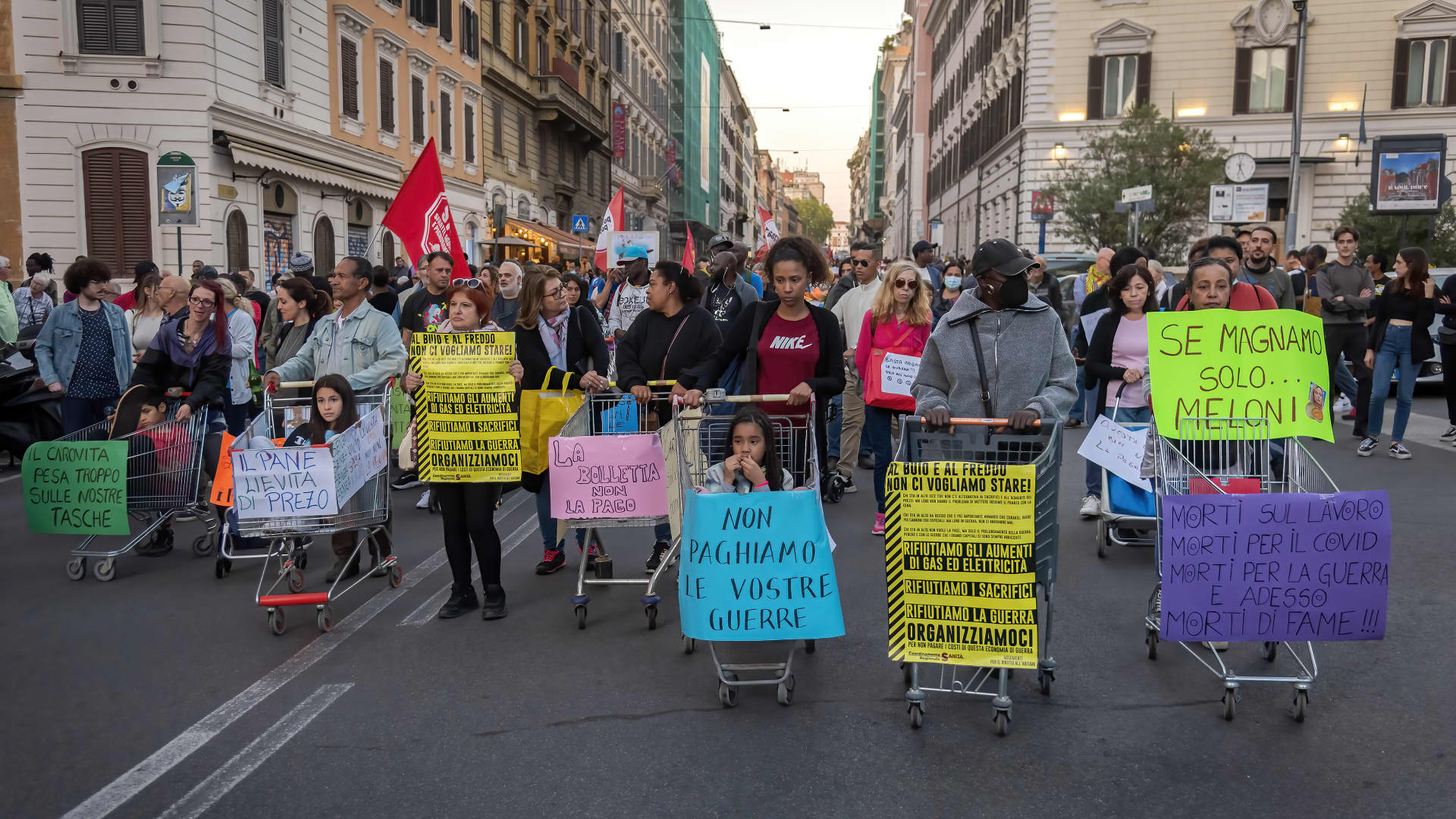Inflation in the euro area remains extremely high. Protesters in Italy used empty shopping carts to demonstrate the cost of living crisis.
Stefano Montesi – Corbis | Corbis News | Getty Images
Inflation in the eurozone exceeded 10% in October, underscoring the severity of the cost of living crisis in the region and increasing pressure on the European Central Bank.
Preliminary data from the European Bureau of Statistics on Monday showed headline inflation last month at 10.7% year-on-year. This is the highest monthly value since the creation of the euro area. Over the past 12 months, the 19-member bloc has faced rising prices, particularly for energy and food. But the increase was highlighted Russia’s invasion of Ukraine at the end of February.
This was confirmed once again: the cost of energy, as expected, had the highest annual growth in October – 41.9% from 40.7% in September. Prices for food, alcohol and tobacco also rose over the same period, jumping 13.1% from 11.8% in the previous month.
Monday’s data came after individual countries reported flash estimates last week. In Italy, general inflation exceeded analysts’ expectations and amounted to 12.8% on an annual basis. Germany also reported that inflation jumped to 11.6%, while in France the figure reached 7.1%. The different values reflect measures taken by national governments, as well as the level of dependence of these countries on Russian hydrocarbons.
However, there are euro countries where inflation has increased by more than 20%. These are Estonia, Latvia and Lithuania.
The European Central Bank — whose main goal is to control inflation — on Thursday confirmed further rate hikes in the coming months in an attempt to lower prices. It said in a statement that it had made “substantial progress” in normalizing rates in the region, but “expects to raise interest rates further to ensure a timely return of inflation to the medium-term inflation target of 2%.”
Last week, the ECB decided to raise rates by 75 basis points for the second time in a row.
Speaking at the following press conference, ECB President Christine Lagarde said that the probability of a recession in the euro area has increased.
Growth data released on Monday showed a GDP (gross domestic product) figure of 0.2% for the euro zone in October. That’s after the region grew 0.8% in the second quarter. Only Belgium, Latvia and Austria recorded GDP below zero.
The 19-member bloc has so far avoided recession, but the economic slowdown is clear. Some economists predict a reduction in GDP in the current quarter.
The euro traded below parity against the US dollar in the early hours of European trading on Monday and ahead of the release of the new data, and was little changed after the new numbers. The euro was weaker against the dollar, and the ECB was also concerned that this would further push up inflation in the eurozone.
This article is first published on Source link


)


